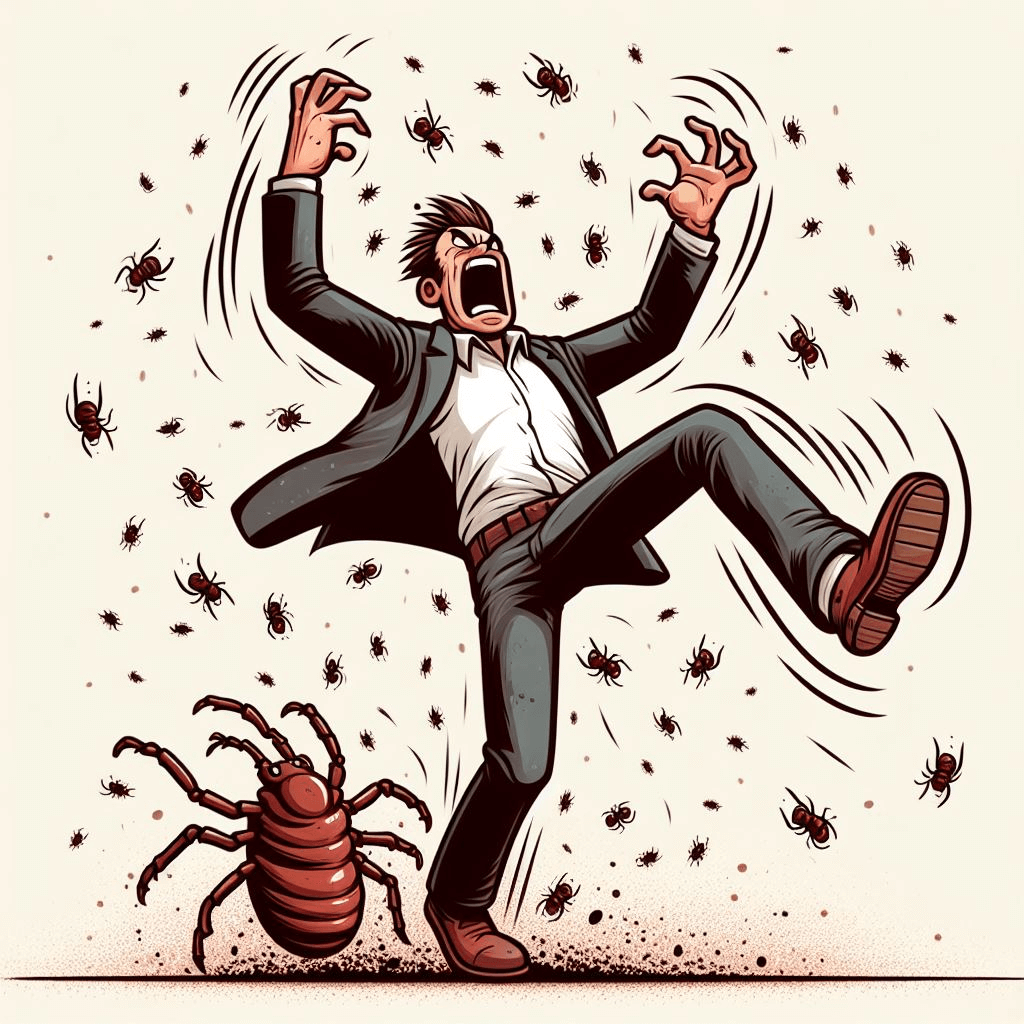Fleas, those tiny, blood-sucking pests that can cause a world of trouble for our furry friends, are more than just an annoyance. They belong to the order Siphonaptera and have been around for thousands of years.
These minuscule insects have a remarkable life cycle that consists of four stages: egg, larva, pupa, and adult. It all starts when adult fleas find their way onto our pets’ bodies.
Female fleas lay their eggs on the fur of our beloved companions. These eggs are incredibly tiny and often go unnoticed by pet owners and parents.
In just a matter of days, these eggs hatch into larvae that hide in dark places such as carpets, bedding, or cracks in the floorboards. Over the next few weeks, these larvae feed on organic debris like flea dirt (excrement), dead flea comb, skin cells, or even dried blood left behind by adult fleas.
As they grow bigger and stronger during this time, they spin silk cocoons around themselves to enter the pupal stage. Inside these protective cocoons, they undergo metamorphosis before eventually emerging as adult fleas ready to infest again.
Explanation of the Dangers Posed by Fleas to Pets
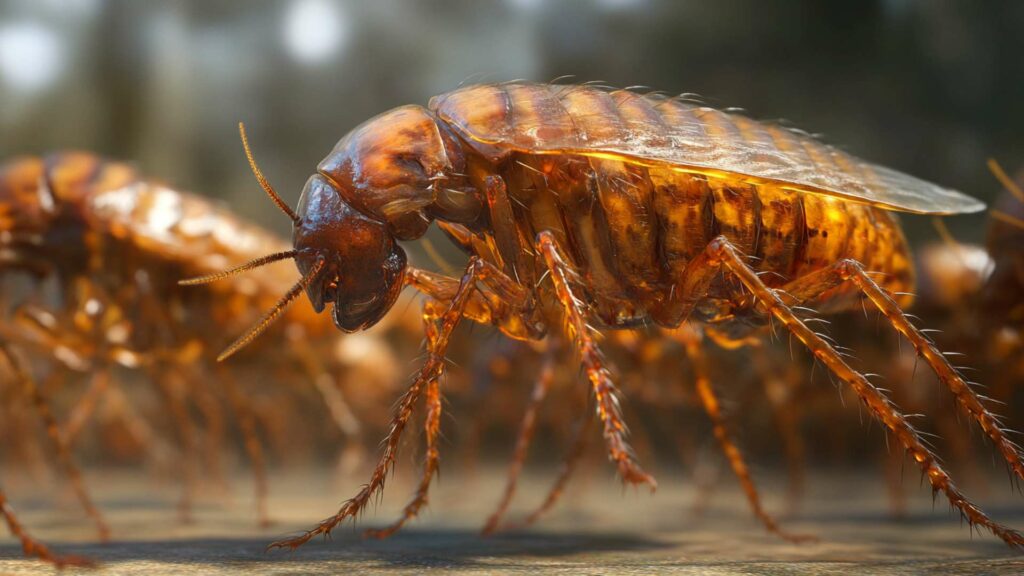
While some may think that fleas are just harmless pests causing itchy irritation to our furry pals, they can actually pose severe health risks if left unchecked. Flea bites can cause intense itching and discomfort for our pets due to an allergic reaction triggered by flea saliva.
But that’s not all! Adult fleas survive by feeding on the blood of animals like dogs and cats naturally require blood meals to reproduce effectively.
Excessive flea infestations can lead to anemia in small or young animals if not treated promptly. Anemia can result in weakness, fatigue, poor coat condition, and even organ failure if left untreated.
Furthermore, fleas are known carriers of various diseases and parasites. They can transmit tapeworms if ingested by our pets during grooming.
Fleas can also transmit bacterial infections such as Bartonella (often known as “cat scratch disease”) or murine typhus. These infections can cause fever, lethargy, swollen lymph nodes, and other serious health issues.
In addition to the physical discomfort and health risks they pose to our furry companions, fleas can also cause emotional distress for both pets and pet parents alike. Constant scratching and restlessness caused by flea infestations can lead to sleepless nights for our furry friends and stress for us as we watch them suffer.
It is crucial for pet parents to take swift action against these pesky insects using natural methods to repel fleas effectively without resorting to harsh chemical pest control solutions that may have adverse effects on our precious companions’ health. There are numerous natural flea problem remedies available that are safe, effective, and kinder to both pets and the environment.
Natural Repellents for Fleas
Essential oils as effective flea repellents
Lavender oil: Its Soothing Scent Repels Fleas
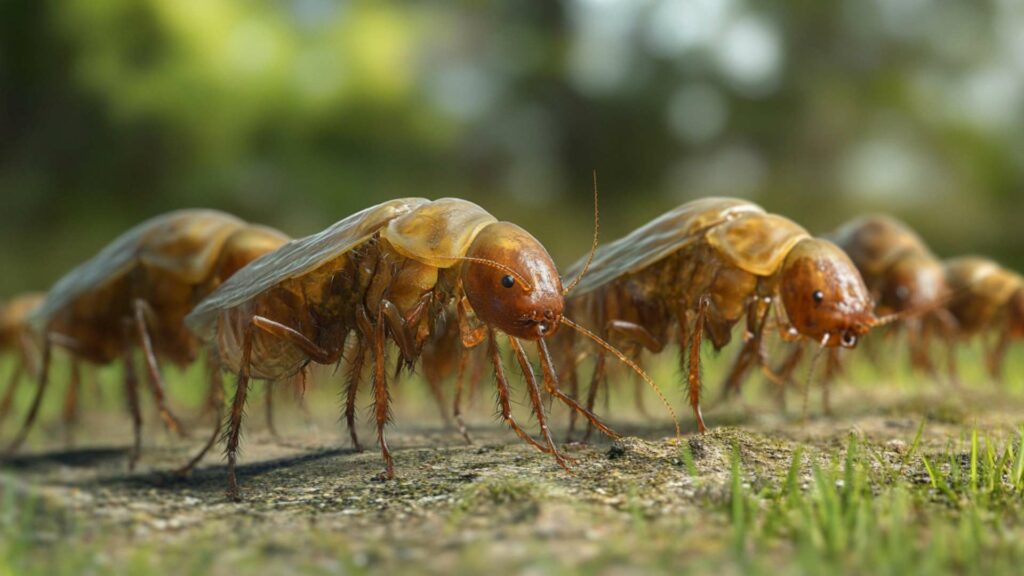
Picture yourself strolling through a serene lavender field, the sweet and calming aroma wafting through the air. Now imagine your furry friend enjoying that same tranquility while keeping fleas at bay.
Lavender oil, with its soothing scent, is not only a delight to humans but also an excellent natural insect repellent for pets. Lavender oil works wonders in repelling fleas due to its potent fragrance that fleas find repugnant.
The strong aroma masks the natural scents emitted by our beloved pets, making them less attractive to these pesky critters. By regularly using lavender-infused products, such as shampoos or sprays on your pets and their bedding areas, you create an environment that is unwelcoming to fleas.
To create a homemade flea spray with lavender oil, mix a few drops of essential oil with water in a spray bottle and apply it generously onto your pet’s fur and bedding. This concoction will not only help repel and get rid of fleas but also leave your furry friends with a fresh and pleasant scent.
Lemongrass Oil: Contains Citronella, a Natural Flea Deterrent
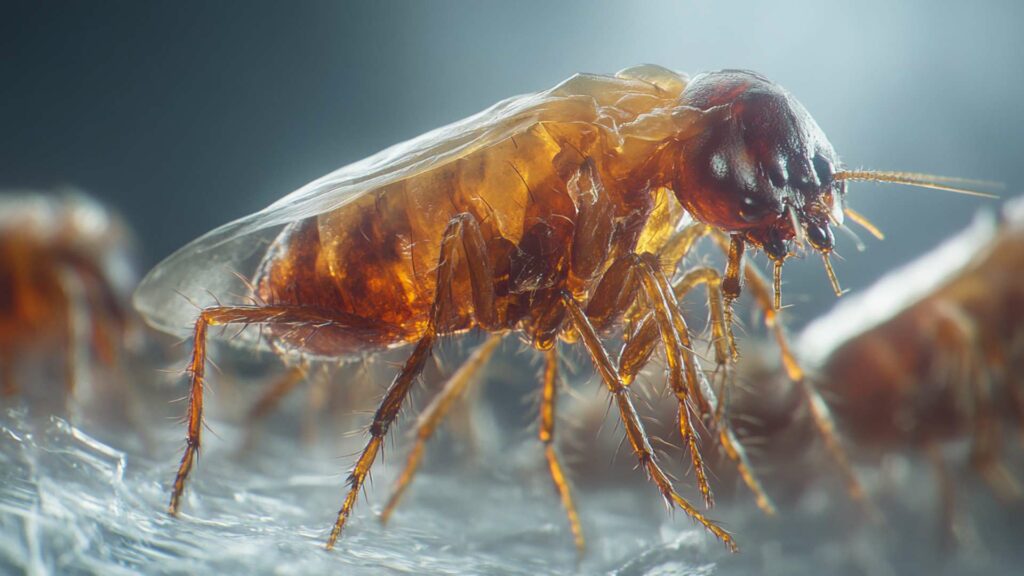
Did you know that lemongrass doesn’t just add zest to culinary dishes? It contains citronella, a well-known natural insect repellent often used in candles and sprays. Lemongrass oil can be an effective tool in fighting off those bloodsucking pests from bothering our four-legged companions.
Citronella acts as an irritant to fleas by disrupting their nervous system, causing them to flee from its pungent scent. When applied topically or infused into pet shampoos, lemongrass oil can provide a protective barrier against flea bites, preventing infestations from taking root.
To create your own natural flea repellent using lemongrass oil, dilute a few drops of the essential oil with water and mist it onto your pet’s fur before outdoor activities. Remember to avoid spraying directly on their face or near their eyes to prevent any discomfort.
Eucalyptus Oil: Its Strong Aroma Keeps Fleas Away
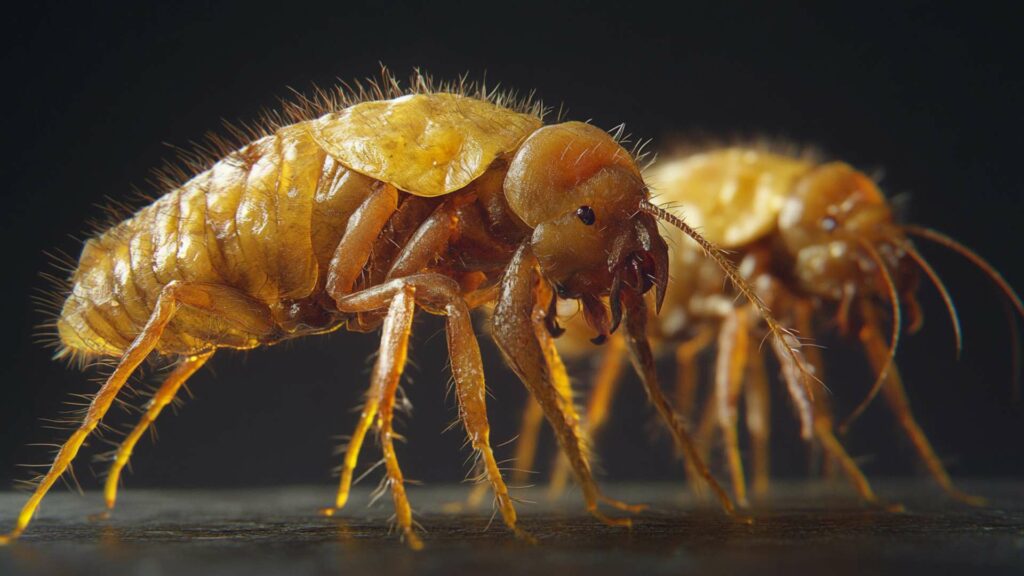
Think back to that invigorating scent of eucalyptus trees in the wilderness. Eucalyptus oil not only transports you to serene landscapes but also serves as an effective natural flea repellent for pets.
The strong aroma emitted by eucalyptus acts as a deterrent for fleas, keeping them at bay. Eucalyptus oil can be used in various forms to help repel fleas.
Mixing several drops with water and applying it directly onto your pet’s fur or diluted in their shampoo during bath time can help prevent flea infestations. Additionally, you can sprinkle a few drops of eucalyptus oil on cotton balls and place them strategically around your home to create a pest-free environment.
Exercise caution when using eucalyptus oil around cats, as they are more sensitive to essential oils than dogs. Always consult with your veterinarian before introducing new products into your pet’s routine.
Herbal Remedies for Repelling Fleas
Rosemary: A Fragrant Herb that Repels Fleas when Used in Pet Bedding or Sprays
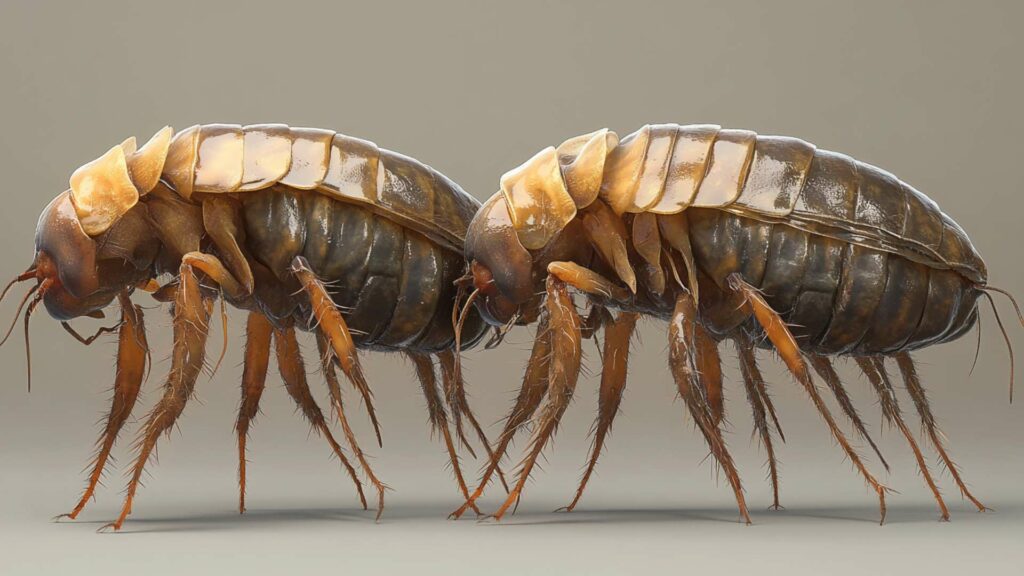
Rosemary not only adds robust flavor to culinary dishes but also possesses properties that make it an excellent herbal and natural remedy for repelling fleas. This fragrant herb contains compounds that act as natural insect repellents and can be utilized in various ways to keep fleas away from our furry friends. One effective method is by incorporating dried rosemary into your pet’s bedding.
Simply sprinkle crushed rosemary leaves onto their sleeping area, creating a natural barrier that fleas will find undesirable. Alternatively, you can create a homemade flea spray by steeping rosemary leaves in boiling water, allowing the mixture to cool, and then transferring it into a spray bottle for easy application.
Rosemary not only repels fleas but also offers numerous health benefits for pets. It contains antioxidants that promote healthy skin and coat while reducing irritation caused by flea bites.
Peppermint: Its Strong Smell Acts as a Natural Flea Repellent
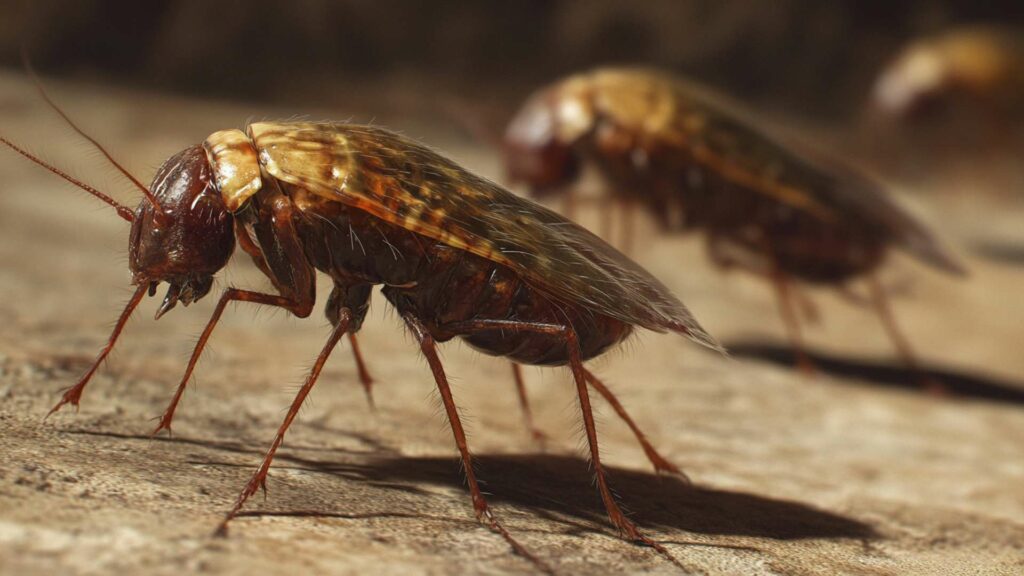
When it comes to refreshing scents and natural pest control, peppermint takes the lead. This aromatic herb possesses a strong smell that acts as an excellent flea repellent for pets.
By incorporating peppermint into your pet’s environment, you create an inhospitable atmosphere for fleas to thrive. Sprinkling dried peppermint leaves around your home or pet’s bedding can serve as an effective deterrent against flea infestations.
The refreshing scent will deter these pesky critters from settling in your furry friend’s cozy spaces. Furthermore, you can harness the power of peppermint oil by diluting it with water and using it as a spray to mist onto your pet’s fur or their favorite resting areas.
However, be cautious not to spray directly on their face or near their eyes. By utilizing these natural home remedies like lavender oil, lemongrass oil, eucalyptus oil, rosemary, and peppermint strategically in controlling fleas; we can keep our furry companions safe from the nuisances of flea bites while ensuring they have a comfortable environment free from pests.
DIY Flea-Repelling Solutions
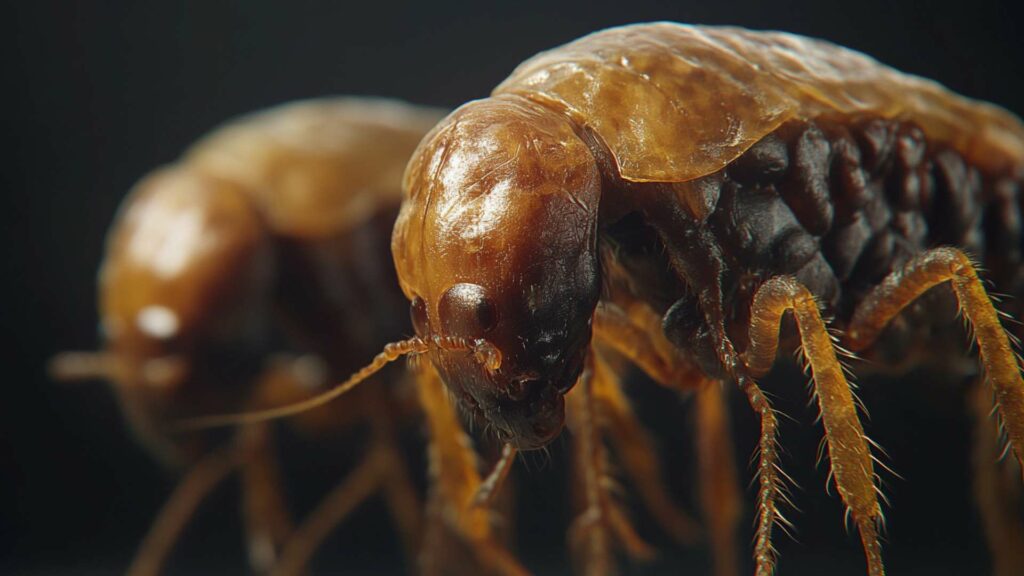
Homemade flea spray recipes using essential oils:
Fleas can be a persistent problem, but there’s no need to rely on harsh chemicals when you can make your own effective flea spray using essential oils. These natural flea home remedies are safe for your furry friends and can help repel those pesky fleas. Here are two simple recipes you can try at home:
Lavender and Water Mixture for Spraying on Pet Bedding:
Lavender essential oil is not only known for its relaxing scent but also for its ability to repel fleas. To make a soothing and effective flea infestation spray, simply mix a few drops of lavender oil with water in a spray bottle.
Shake well before use, then lightly mist your pet’s bedding, blankets, pillows, and any other areas where they rest or sleep. The lavender scent will help keep fleas away from these areas, as it acts as a natural deterrent.
Additionally, lavender has antimicrobial properties that can help soothe any irritated skin caused by flea bites. Regular use of this homemade spray will aid in preventing infestations while also providing your pet with a calming environment.
Lemongrass-Infused Vinegar Spray for Treating Carpets and Furniture:
Vinegar is an excellent natural flea repellent ingredient that helps repel fleas due to its acidic nature. When combined with lemongrass oil, which contains citronella – a well-known flea repellent – it becomes even more effective.
To create this flea-fighting solution, take two cups of vinegar and add several drops of lemongrass oil into a spray bottle. Before spraying the mixture onto carpets or furniture upholstery (after testing in an inconspicuous area), vacuum thoroughly to remove any existing fleas or eggs.
Then, generously spray the lemongrass-infused vinegar on your carpets, furniture, and any other areas where fleas might be present. The strong scent will discourage fleas from settling in your home.
Herbal flea collars for pets:
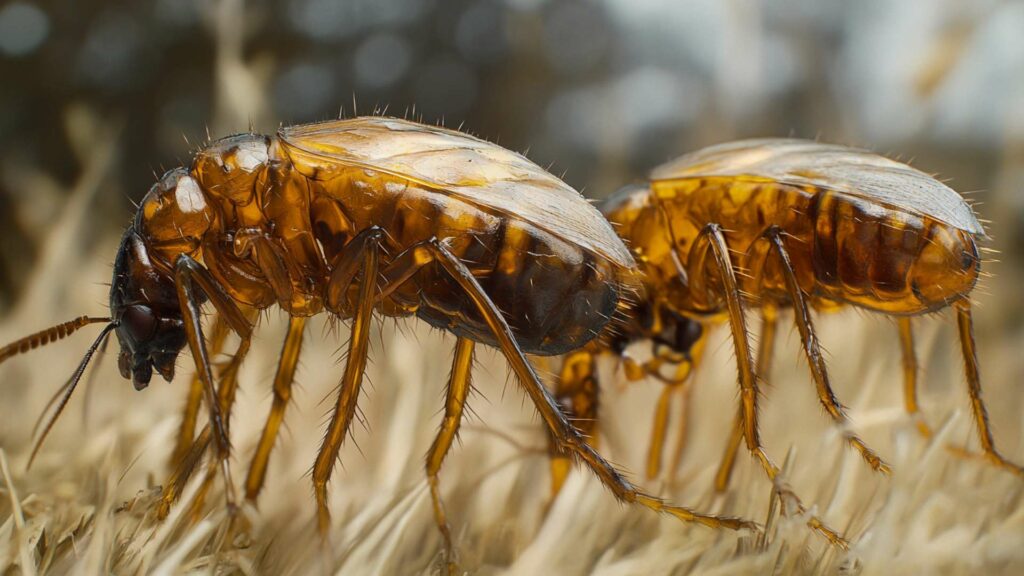
Flea collars are another great way to repel fleas naturally. Instead of relying on commercially-made collars that may contain harmful chemicals, you can make your own using dried herbs like lavender, rosemary, and eucalyptus.
Using Dried Herbs in a Fabric Collar:
To create an herbal flea collar, start by selecting a soft fabric that is comfortable for your pet to wear. Cut the fabric into a long strip wide enough to wrap around their neck comfortably. Next, take dried lavender flowers, rosemary leaves, and eucalyptus leaves and crush them gently to release their oils.
Sprinkle these crushed herbs along the length of the fabric collar and then roll it up tightly. Secure the ends with a simple knot or sew them together if needed.
Place this homemade herbal flea treatment collar around your pet’s neck so that it fits snugly but does not cause discomfort. As your pet wears this collar throughout the day, the herbs will release their natural scents which repel fleas effectively.
Remember to replace the herbs every few weeks or as needed to maintain their potency. By utilizing these DIY flea-repelling solutions such as homemade sprays and herbal collars made with essential oils and dried herbs respectively, you can protect your pet from these pesky parasites without exposing them to harsh chemicals or toxins commonly found in commercial products.
Landscaping techniques to deter fleas
When it comes to naturally repelling fleas from your surroundings, incorporating certain landscaping techniques can be highly effective. By strategically planting flea-repelling plants and creating gravel barriers, you can create an environment that is less welcoming to these pesky parasites.
Planting flea-repelling plants like pennyroyal or chrysanthemums in the yard
Flea-repelling plants can act as a natural deterrent against these bothersome insects. Pennyroyal and chrysanthemums are two examples of such plants that emit scents that fleas hate. By strategically placing them in your yard, you can create a barrier against potential flea infestations.
Pennyroyal emits a strong aroma that repels fleas, while chrysanthemums contain pyrethrins, a natural insecticide that kills and repels fleas. Planting these flea-repelling plants around your outdoor living areas or near entrances can help keep these pests at bay.
Creating gravel barriers to prevent flea infestations from neighboring areas
An often overlooked but effective method for preventing flea infestations is the creation of gravel barriers. Fleas tend to avoid sandy or rocky surfaces as they find it difficult to navigate through them. By creating a layer of fine gravel around the perimeter of your yard or between neighboring areas, you create a physical barrier that deters fleas from crossing into your space.
This simple technique acts as a physical deterrent for fleas by making it challenging for them to travel across. It also serves as an additional defense against potential flea infestations by blocking their entry points into your yard.
Regular cleaning routines to eliminate fleas
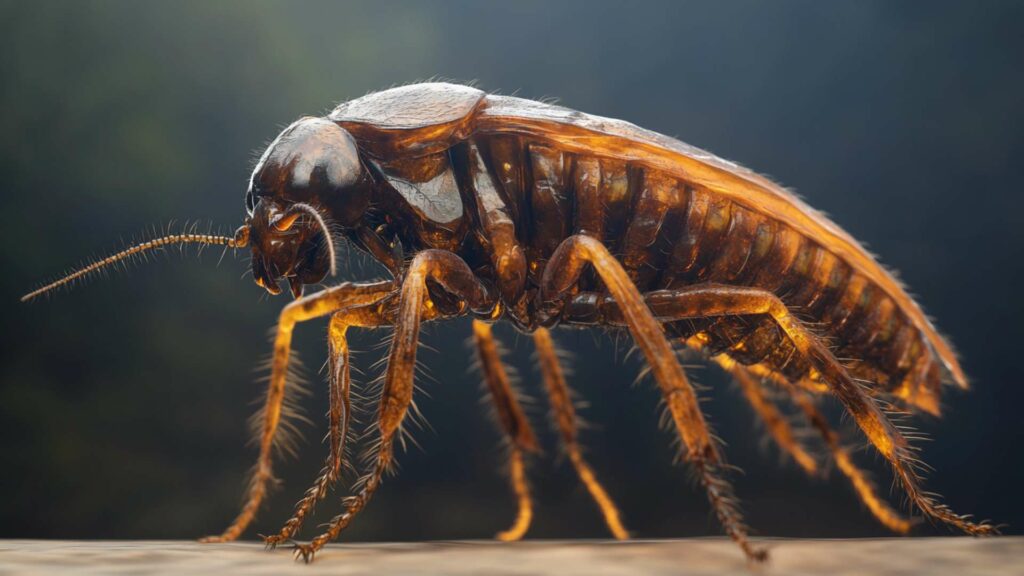
Vacuuming carpets, furniture, and pet bedding frequently
A crucial step in combating fleas is maintaining a regular cleaning routine. Vacuuming your carpets, furniture, and pet bedding frequently helps to eliminate flea eggs and larvae. Pay special attention to areas where your pets spend most of their time or where fleas are likely to hide.
Make sure you use a vacuum cleaner with strong suction power and dispose of the collected debris in a sealed bag immediately after vacuuming. This prevents any surviving fleas from reinfesting your home.
Washing
Regularly washing your pet’s bedding, blankets, and toys in hot water can help kill fleas effectively. Fleas cannot survive high temperatures, so washing these items at a temperature above 130°F (54°C) ensures their complete removal. In addition to washing pet accessories, it’s also essential to give your furry friend regular baths using flea-repellent shampoos.
Look for products that contain natural ingredients such as lemon juice or lavender essential oil, as fleas hate these scents. This will help remove existing fleas from your pet’s fur and prevent future infestations.
Conclusion
Fleas can be a nuisance for pet parents and their beloved animals alike. However, by implementing natural environmental flea control, measures such as strategic landscaping techniques, and maintaining regular cleaning routines, you can significantly reduce the risk of flea infestations without relying on harsh chemicals or treatments. Remember to plant flea-repelling plants like pennyroyal or chrysanthemums in your yard while creating gravel barriers between neighboring areas.
Combine these efforts with vacuuming carpets, furniture, and pet bedding frequently as well as washing them with hot water regularly. By taking proactive steps towards flea prevention through these natural methods, you’ll create a more comfortable and flea-free environment for both you and your furry companions.
Exterminate Fleas with D-Termination: The Leading Pest Control Solution in Las Vegas!

If you’re contending with flea issues at your Las Vegas property, D-Termination is here for you. Our skilled team specializes in eradicating flea infestations, ensuring the restoration of comfort and peace to your space. Bid farewell to fleas—opt for D-Termination for effective pest control today!
Reach out to us at 702-919-6310 or visit dtermination.com to schedule your flea control service and reclaim your space from these bothersome pests.
Frequently Asked Questions:
A mixture of apple cider vinegar and water can be an effective homemade flea repellent.
Diatomaceous earth, vacuuming, and regular cleaning help eliminate fleas naturally.
Essential oils like lavender or cedar oil can be applied to the skin to repel fleas.
Using natural repellents like citronella and maintaining a clean environment helps prevent fleas from biting.

